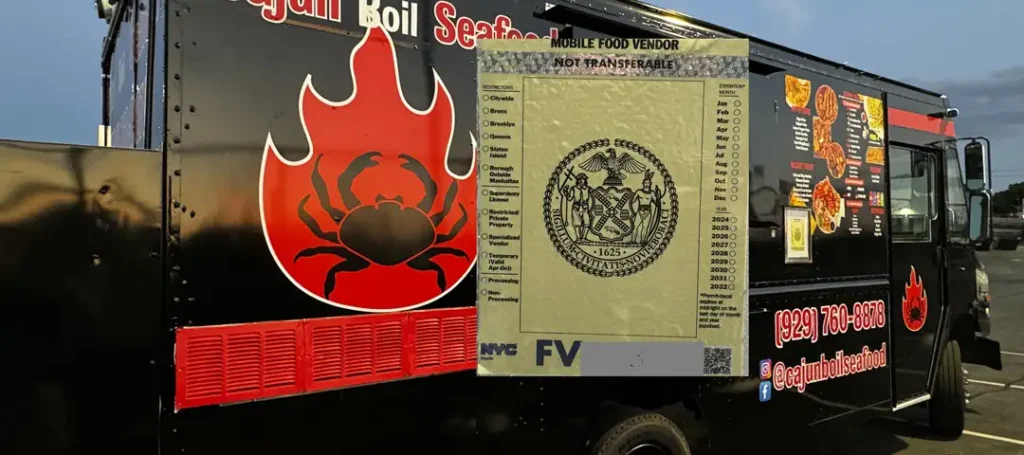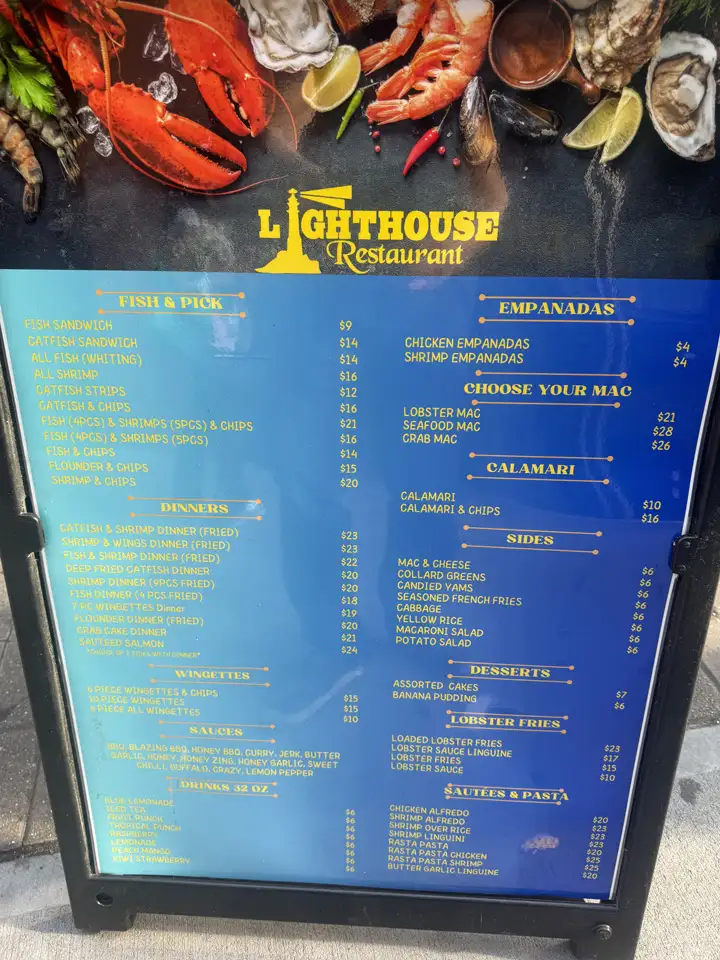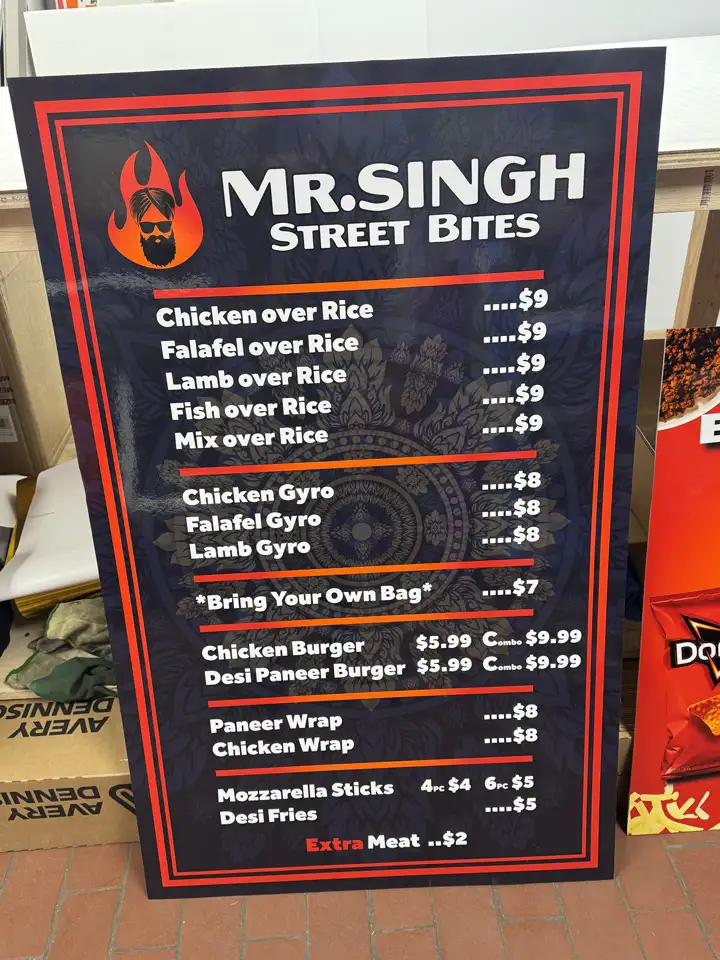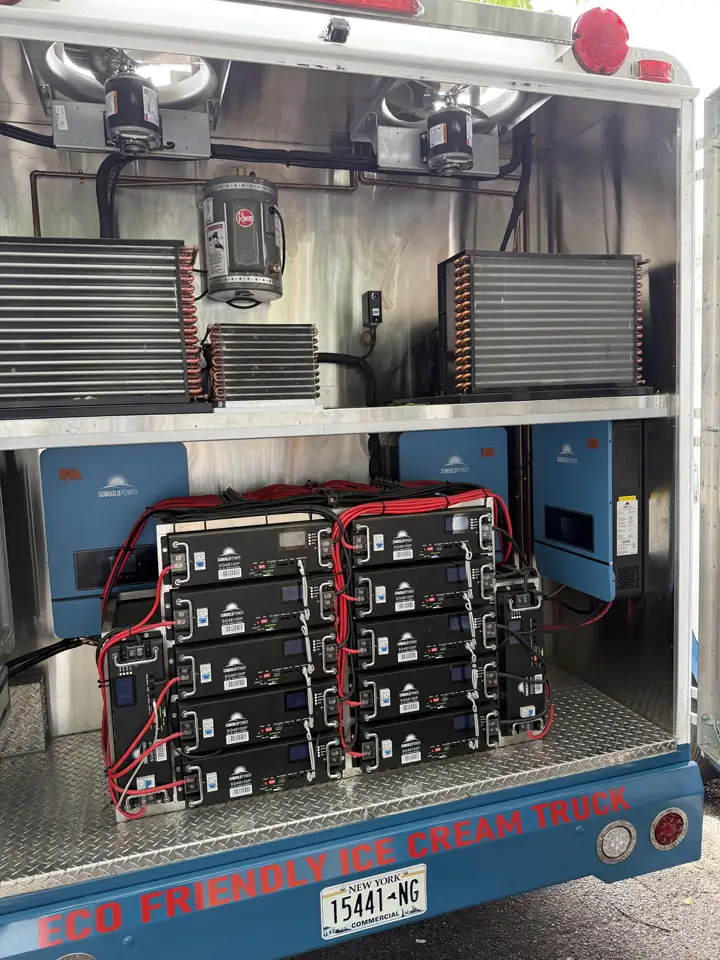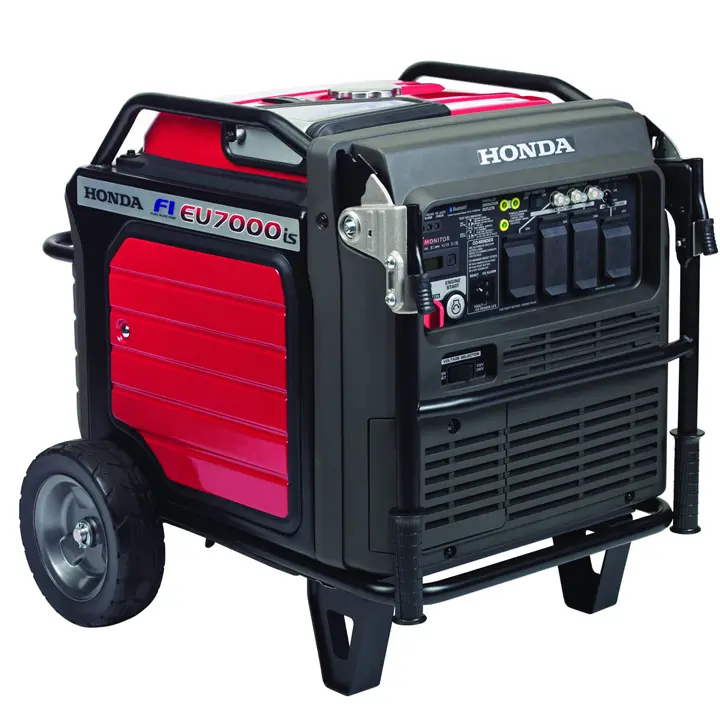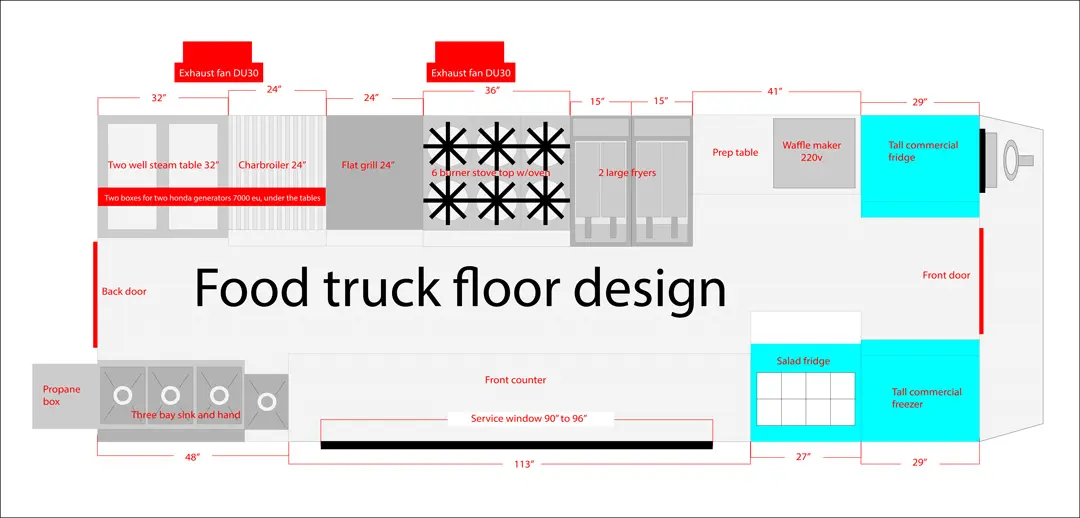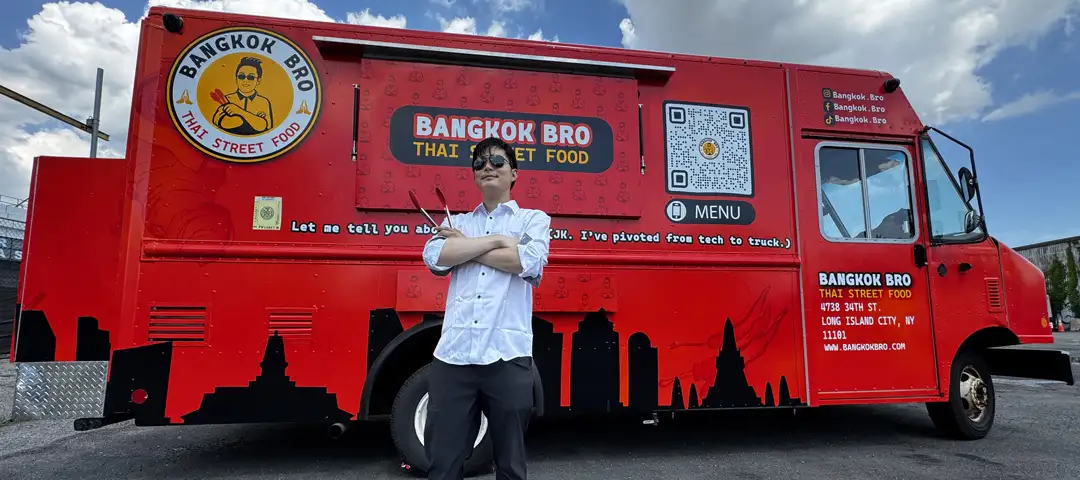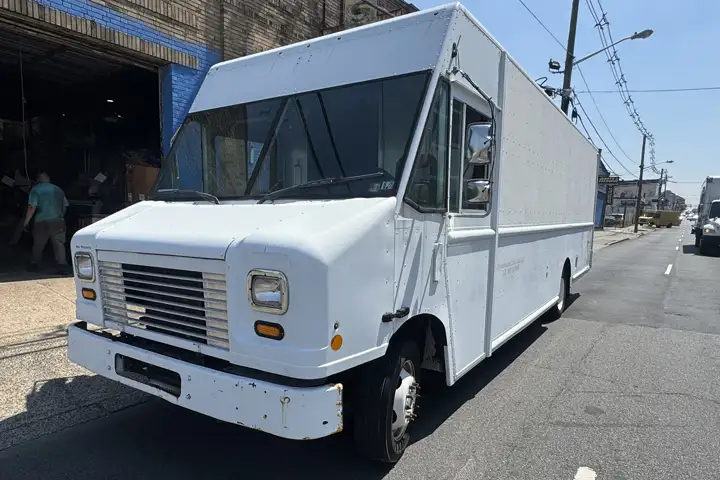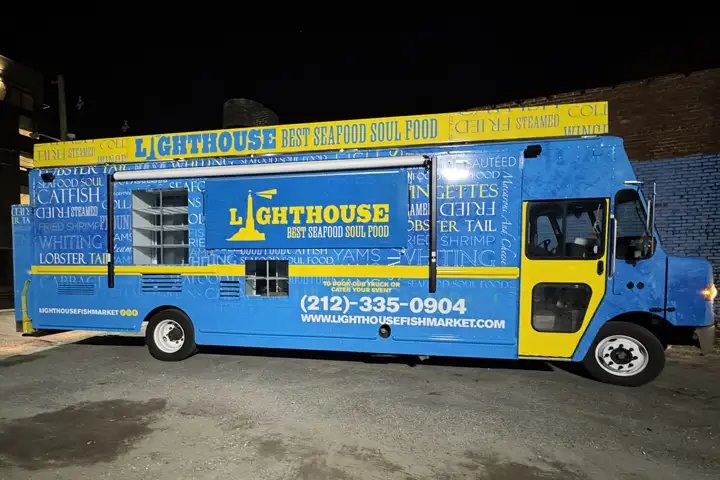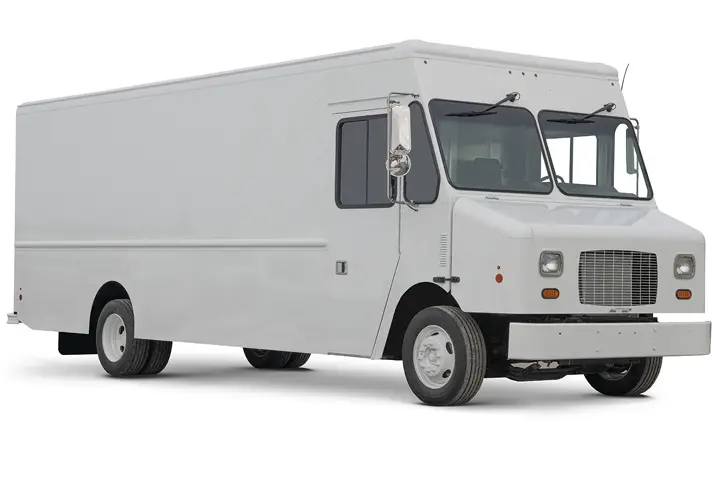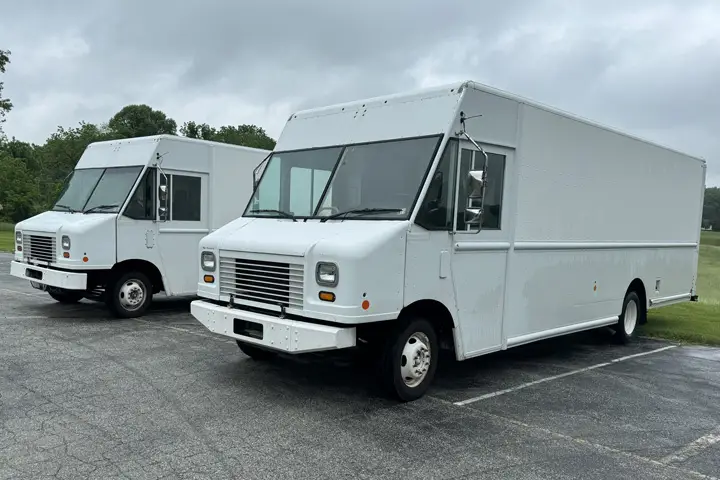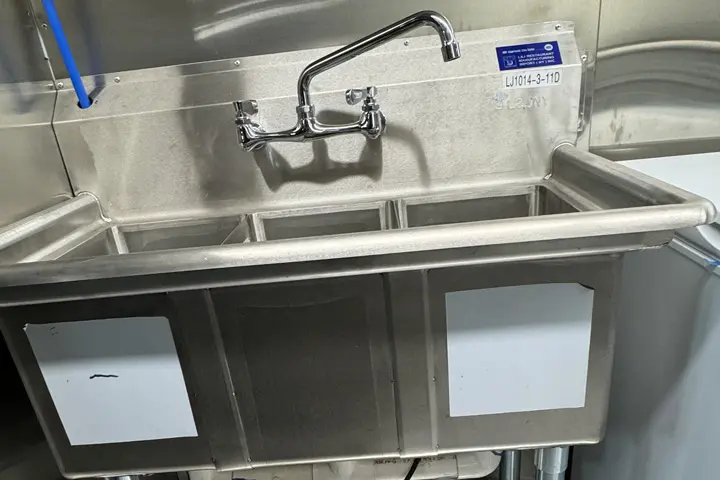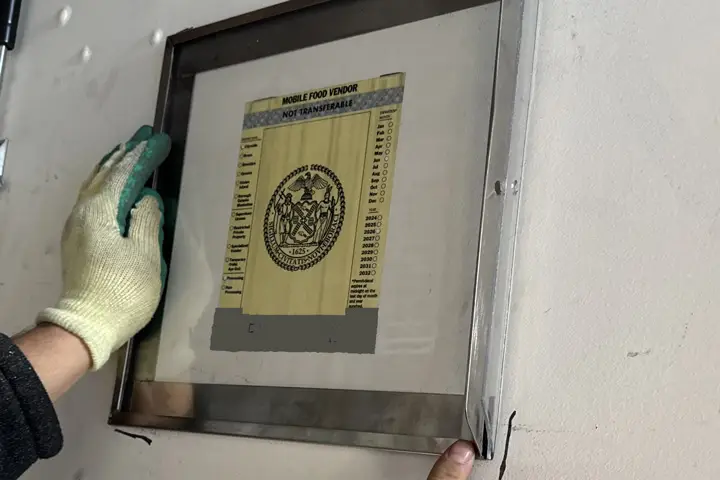This step-by-step guide will help you choose the right truck, avoid costly mistakes, and launch faster—whether you’re starting from scratch or expanding your fleet.
Buying a food truck is one of the most important investments you’ll make for your culinary business. At Factory Food Trucks, we’ve designed, built, and sold food trucks for chefs, entrepreneurs, and major brands all across the USA. We meet all regulations, design requirements, and operational details that can turn your food truck dream into a profitable reality.
- Burgers, cheesesteaks, tacos kitchens → require flat-top grills, fryers, refrigeration, and efficient prep space for high-volume service.
- Specialty cuisines kitchens → may need unique equipment such as wok ovens for Chinese dishes, steamers for seafood, tandoori grills for Indian or Bengali flavors, Brazilian BBQ pits, or pizza ovens for artisan pies.
- Crepes, coffee, desserts kitchens→ benefit from extra prep counters, refrigeration for ingredients, and attractive customer-facing display areas.
Pro Tip: You don’t need to have a finalized or fully detailed menu yet. Just share the type of food you plan to cook and the equipment you’ll need, and our expert design team will create a custom, code-compliant layout that maximizes workflow, speeds up service, and keeps customers coming back.
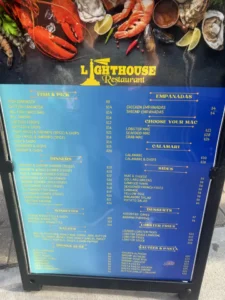
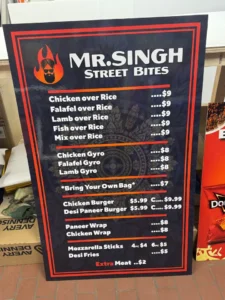
- Propane builds → usually require full fire suppression and cannot operate indoors.
- Fully electric builds powered by a generator → require no fire suppression unless an electric fryer is in use. While these units are approved for indoor catering in enclosed venues, the generator itself cannot be operated indoors—power must be supplied from the building’s electrical grid.
- Fully electric builds run on rechargeable batteries → offering silent operation and no need for fire suppression—unless an electric fryer is used. These units are approved for indoor catering in enclosed venues, but the technology is still relatively delicate and, in most cases, less dependable than generator-powered setups.
- Hybrid propane-electric systems → are the most common choice, offering flexibility by combining propane with electric power. The electricity can come from either a generator or rechargeable batteries.
Noise regulations for generators vary by municipality—and while enforcement might be more relaxed in suburban areas, urban centers often take them much more seriously. For example, residential zones typically impose daytime limits around 60 dB and lower thresholds like 55 dB at night, with violations potentially leading to significant fines.
Silent inverter generators offer a cost-effective way to meet these rules with minimal disturbance, while battery-powered systems are virtually inaudible—though they tend to be pricier and affect the truck’s layout and size.
No matter your choice, NYC, NJ, and most states require fire department vehicle inspections—and we build every truck to pass the first time.
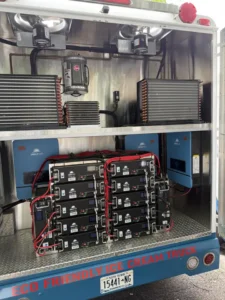
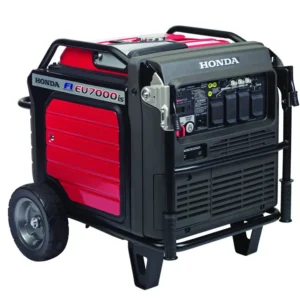
We focus on:
- Clear workflow from prep to service.
- Proper ventilation and compliant hood systems.
- Strategic equipment placement for speed and safety.
- Smart storage solutions for peak service hours.
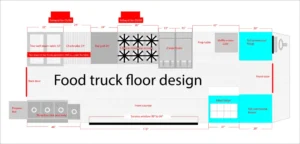
- 14 ft → compact, easy to park, and lower operating costs.
- 16–18 ft → our most popular size, ideal for full menus with great maneuverability
- .20+ ft → maximum capacity for high-volume events and catering.
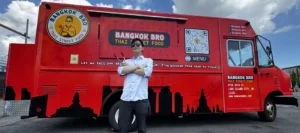
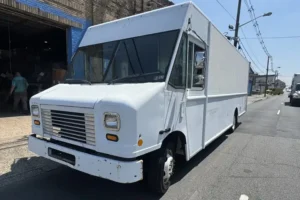
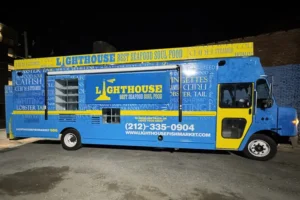
- New trucks → (Ford, Freightliner) start at $80,000+ before build-out.
- Used trucks → (fleet-maintained or privately owned) run $10,000–$25,000 before build-out, making them the most popular choice.
We source from trusted auctions like Ritchie Bros and JJ Kane. Build-outs typically cost $30,000–$90,000 depending on complexity and equipment.
We’ll guide you in choosing between heavy-duty models like Freightliner and Ford F59, or lighter-duty options like Workhorse and Chevy.
Sample of two step van : new Morgan olson- 2025 and used F59 – 2012
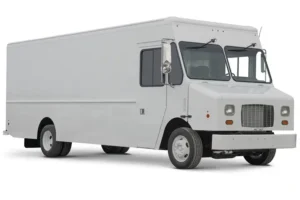
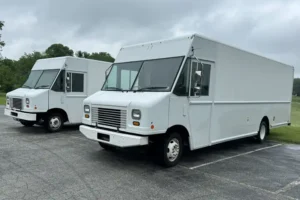
- 3-bay sink + separate handwash sink.
- Fresh & grey water tanks (we recommend 40+ gallons, even if local minimums are lower).
- NSF-approved equipment.
- UL-listed electrical and propane systems.
Ventilation and suppression systems that meet or exceed code (Note: In NYC, suppression isn’t mandatory unless using a fryer; a Class K extinguisher is sufficient).
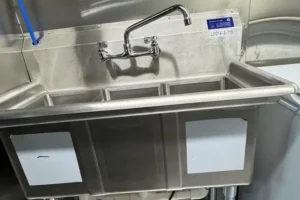
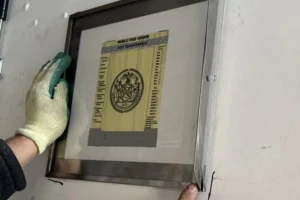
- Licensing & permits.
- Insurance.
- Wrap & branding.
- Maintenance & fuel.
- Staff training.
Pro Tip: Our bundled packages include the build, wrap, and training—saving you time, money, and headaches.
- Professional Truck Wraps → Our in-house wrap division in Queens, NY designs and installs bold, eye-catching graphics that stand out on the street and at events.
- Memorable Logo & Design → A well-crafted logo and consistent brand style make your business instantly recognizable.
- Social Media Marketing → Share your story, menu, and behind-the-scenes moments on platforms like Instagram, TikTok, and Facebook to connect with your audience.
- Community Engagement → Build content around your local community to create loyalty and make people excited to buy from you.
- SEO Strategy for Your Website → Optimize your site with the right keywords so customers can easily find you when searching for your cuisine or location.
- Brand Storytelling → Use photos, videos, and posts to show your journey, values, and what makes your food truck unique.
As a food truck, marketing across multiple platforms—such as Facebook, TikTok, Reddit, and Google—is key to standing out and attracting more customers, including those looking to book you for catering and events.

- Good credit (700+ score).
- Solid bank statements (last 90 days, no negative days).
- 2+ years profitable business history (or strong personal income).
- If applying personally: W-2 income over $70k often qualifies for personal loans.
Always review total costs, interest rates, and fees before committing.
- Code-compliant builds for all 50 states.
- Expert design and fabrication.
- In-house printing and wrap services.
- Post-delivery training & support.
- Long-term partnership for repairs, upgrades, and future builds.
Contact us with any questions or for expert guidance on your food truck project.
Visit us at factoryfoodtrucks.com.
